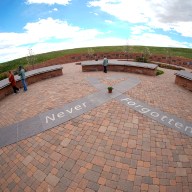Stan Lee is a beloved figure to a generation of Marvel Comics readers who grew up captivated by his legendary creations, like Spider-Man, The Hulk, X-Men, and Iron Man.
Now that his characters dominate the movie box office, he’s become a pop culture icon whose imagination is responsible for some of the great myths of the 20th century. Metro got a chance to speak to the superhero guru as he planned a trip to Toronto for the annual FanExpo.
How did people react to you saying that you wrote comics when you started?
Nobody had any respect for comic books in those days. It was considered to be something that very young kids read, or older people who weren’t too bright. They were considered the lowest rung on the cultural totem pole.
When did that start to change?
I think Marvel Comics really was responsible for that. At some point we started using college level vocabulary in our dialogue balloons and captions. We tried to make the stories more intelligent. We tried to play up characterization and give each one of our heroes and villains definite personalities. We concentrated on really good storytelling as best we could.
Did you ever think comic books could get this popular?
No. Years ago I never could have imagined that comics would be the wellspring for so many huge movies and popular franchises. I don’t think any of us in the business could have. I don’t know where it’s going. I hope it continues. I think as long as the people writing these things can come up with clever enough ideas to hold the audiences’ interest, it’ll keep going. Because people love this type of story. They’re colourful, they’re surprising, they’re bigger than life, they’re imaginative, and that’s what the fans like.
How did you first get into comics?
Oh, I was about 17 when I got into comics and people reacted like “Who is this kid hanging around?” I worked as an assistant to Joe Simon and Jack Kirby, who created Captain America. In those days, they still used pen and ink wells and I would fill the ink wells and erase the pages for them. I would also go down and get them their sandwiches at lunch. I was just a general office helper.
Then one day Joe and Jack left, and it was a very small department, just the three of us. So when they were no longer working there, the publisher Martin Goodman said, “Stan do you think you can hold down the job as writer and editor until I get somebody who is a grown up?” When you’re 17 years old, what do you know? I said, “Sure I can do it.” I think he forgot to hire someone else and I was there ever since.
Are you still reading comics these days?
You know, believe it or not, I don’t have any time to read any. I’ll write them occasionally, but it’s my lasting regret. I don’t have time to watch enough TV or read enough comics. I’m too busy working.
How do you feel about these sorts of fan and comic book conventions now after having done them for so many years?
These fan conventions are absolutely wonderful. I like nothing better than to be with the fans and hear what they have to say. You know, years ago I used to travel around and give lectures at colleges. There would always be a question and answer period and that to me was the most important. It wasn’t the information that I was giving them, it was what I was learning from them by the questions they would ask. I was always able to find out what they were the most interested in and that helped me write my stories. It’s the same thing when I go to a comic book convention.















